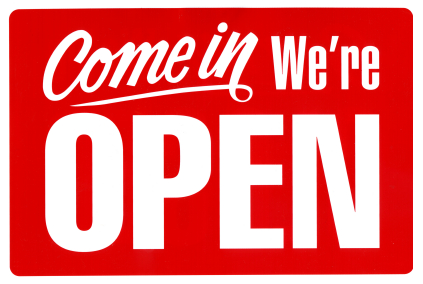Mamata making soap
My wife Suzanne and I recently spent a week with a group of Hunger Project investors attending celebration ceremonies for 3 epicenters that have achieved the exciting accomplishment of being declared "self-reliant," meaning communities that have demonstrated the confidence, capacity and skills to act as agents of their own development based on 53 distinct, rigorous measures. All told, nearly 42,000 people living in the 47 communities that make up the 3 epicenters have graduated to self-reliance in Ghana. Between 40-90% of the community members participate in one or more of the programs during the Epicenter Strategy journey which empowers community partners to go from a state of despair and resignation to self-reliance in on average, about 8 years.
During these celebrations, Mamata, a young village mother of 4 children who participates in The Hunger Project's Atuobikrom Epicenter in Ghana, Africa stated one of the most impactful leadership insights I've heard in a very long time.
When we arrived at her home, she was busy making soap outside in the yard. She never slowed her work down as we gathered around her and asked her questions about her life. She shared her very heartfelt thoughts with us as we probed for details about her family, the economics of her business, and how it all relates, (or doesn't), to the work of The Hunger Project.
Intervention
She shared a number of fascinating insights and her response to the last question was the capstone! "From your own experience as part of the epicenter, what would you like the women of the world to know?" Without hesitation, she replied, "be interested in intervention." Based on her earlier comments, she clearly was not talking about intervening in other people's lives. She meant intervention in your own life.
An example of what she was talking about was her “before and after” participation in The Hunger Project questions about her vision. She said she had no vision before being part of the program. Now she is building her soap-making business and has become involved in farming with her husband. She will put all her kids through school instead of having them work in the home and farm and she knows the importance of the kids getting an education. With support, she intervened in her own life and now her future has a completely different trajectory.
Her intervention quote was particularly relevant to me as I had just recently had a conversation with a rising star woman leader who shared her frustration with what seems to her an obsession with training in her organization and all the consultants pushing training, none of which seemed to her to be making much difference. We had contrasted the desire for information and intellectual understanding with development, which requires rigorous and sometimes painful examination of your own self-image and world view, and, more often than not, having to give up precious notions from your past. The payoff is that it will provide you with new openings and unexpected opportunities.
Mamata experienced The Hunger Project’s Vision, Commitment, and Action Program, along with several thousand of her neighbor's in the 11 villages that make up the epicenter. She has used that work to re-invent her life and create new possibilities for herself, her family, and the community.
If you became interested in intervention in your own life, what would be possible? What could it mean? What might be the unexpected outcomes? What if you could do it at the “collective level” of your organization as Mamata experienced within her Epicenter?


 For the last 4 years or so we have developed a set of ideas we call Lean Conversations. The fundamental notion is that academicians, consultants, leaders, and managers in our culture have focused on and accomplished tremendous gains in productivity through process improvement, supply chain management, IT, and a host of manufacturing concepts including Lean Manufacturing. The area that has been largely overlooked as an opportunity for improvement in productivity is the friction and waste that occurs in the conversations people have with each other as they go about their daily work together. By friction and waste we mean the upsets, resistance, broken promises, undelivered communications, failed intentions, etc., etc. (You get the picture.)
We have long believed the single biggest key to productivity gains in our economy today is to identify and clear upsets, first in ourselves, and then in others. Over many years with our clients we have conducted a sort of “informal qualitative survey,” by asking them, “ if people in your organization just came to work, did their jobs, and went home without having upsets, issues with each other, their work, etcetera, what time could you go home?” Consistently we would hear they could go home between 10:30 and 11:00 a.m. This answer used to surprise us until we heard it over and over
For the last 4 years or so we have developed a set of ideas we call Lean Conversations. The fundamental notion is that academicians, consultants, leaders, and managers in our culture have focused on and accomplished tremendous gains in productivity through process improvement, supply chain management, IT, and a host of manufacturing concepts including Lean Manufacturing. The area that has been largely overlooked as an opportunity for improvement in productivity is the friction and waste that occurs in the conversations people have with each other as they go about their daily work together. By friction and waste we mean the upsets, resistance, broken promises, undelivered communications, failed intentions, etc., etc. (You get the picture.)
We have long believed the single biggest key to productivity gains in our economy today is to identify and clear upsets, first in ourselves, and then in others. Over many years with our clients we have conducted a sort of “informal qualitative survey,” by asking them, “ if people in your organization just came to work, did their jobs, and went home without having upsets, issues with each other, their work, etcetera, what time could you go home?” Consistently we would hear they could go home between 10:30 and 11:00 a.m. This answer used to surprise us until we heard it over and over  again. Let’s allow for gross overstatement and cut that savings in half. Even with this modification it appears there is at least two to four hours of time savings available for the leaders, (and presumably everyone else in the organization), if there were less upsets, less confusion and fewer issues in people’s interactions with each other. Bottom line, this means ther are potentially enormous opportunities for gains in productivity right in front of us, largely unnoticed, (or framed in that way), and largely unleveraged.
again. Let’s allow for gross overstatement and cut that savings in half. Even with this modification it appears there is at least two to four hours of time savings available for the leaders, (and presumably everyone else in the organization), if there were less upsets, less confusion and fewer issues in people’s interactions with each other. Bottom line, this means ther are potentially enormous opportunities for gains in productivity right in front of us, largely unnoticed, (or framed in that way), and largely unleveraged. In a recent conference call with a group of our affiliated facilitators, I was struck by the high level of interest in becoming experts in conflict resolution. From divorce counseling to working on international negotiations, their attention was focused on what I call the “seen” portion of communication and relationship. It’s the part where fight, flight, freeze or appease behaviors are very observable and running the show. It’s also the part where people are very appreciative when someone helps pull the thorn out of their proverbial paw. The obviously large market of people, groups and nations in conflict is clearly calling to them.
Those in pain seem to be much more more willing to pay to reduce or eliminate the pain versus figuring out how to avoid it in the first place. In the physical world, that translates into Western medicine being largely focused on managing disease and illness instead of prevention. In the “unseen” world of our psyche, it translates into therapists, lawyers, and judges dominating the world of struggling marriages and breakdowns in business relationships.
In a recent conference call with a group of our affiliated facilitators, I was struck by the high level of interest in becoming experts in conflict resolution. From divorce counseling to working on international negotiations, their attention was focused on what I call the “seen” portion of communication and relationship. It’s the part where fight, flight, freeze or appease behaviors are very observable and running the show. It’s also the part where people are very appreciative when someone helps pull the thorn out of their proverbial paw. The obviously large market of people, groups and nations in conflict is clearly calling to them.
Those in pain seem to be much more more willing to pay to reduce or eliminate the pain versus figuring out how to avoid it in the first place. In the physical world, that translates into Western medicine being largely focused on managing disease and illness instead of prevention. In the “unseen” world of our psyche, it translates into therapists, lawyers, and judges dominating the world of struggling marriages and breakdowns in business relationships. We call this type of work “triage” which Merriam-Webster defines as 1) “a sorting of and allocation of treatment to patients and especially battle and disaster victims...” and 2) the assigning of priority order to funds on the basis of where funds an other resources can best be used, are most needed, or are most likely to achieve success.” When I recall my mom saying, “An ounce of prevention is worth a pound of cure,” the whole cultural spending priority seems backwards to me.
We call this type of work “triage” which Merriam-Webster defines as 1) “a sorting of and allocation of treatment to patients and especially battle and disaster victims...” and 2) the assigning of priority order to funds on the basis of where funds an other resources can best be used, are most needed, or are most likely to achieve success.” When I recall my mom saying, “An ounce of prevention is worth a pound of cure,” the whole cultural spending priority seems backwards to me. Witnessing the recent events in the Middle East has provoked feelings and reactions on many levels. Since this blog focuses on leadership, we want to point out a leadership lesson that we see. (Note: Because this is a leadership blog we are NOT making any comments about the political, economic or larger social implications of what is happening. We recognize that what is happening is complex. We are going to pull out and comment on a particular thread.)
When a situation is large scale and extreme, it creates a “stark relief map” where things become vividly visible. This is why looking at the leadership in the Middle East is relevant to leadership within organizations. Similar dynamics can and do happen within many organizations, just on a more subtle and less complex level.
Witnessing the recent events in the Middle East has provoked feelings and reactions on many levels. Since this blog focuses on leadership, we want to point out a leadership lesson that we see. (Note: Because this is a leadership blog we are NOT making any comments about the political, economic or larger social implications of what is happening. We recognize that what is happening is complex. We are going to pull out and comment on a particular thread.)
When a situation is large scale and extreme, it creates a “stark relief map” where things become vividly visible. This is why looking at the leadership in the Middle East is relevant to leadership within organizations. Similar dynamics can and do happen within many organizations, just on a more subtle and less complex level. During a conversation with one of our CEO clients this morning, we saw more deeply into something that I’ve been puzzling about for a long time that was both helpful and a bit entertaining for him. My puzzle has been ‘what makes it so hard for most of us to fully articulate and then share our real dreams with those around us? ‘
What came clear out of our conversation is that there is great personal risk in fully speaking a dream, even to yourself. Our histories, (which we fondly refer to metaphorically at 2130 Partners as "File Cabinets"), have lots of evidence stored in them about things that haven’t turned out, limiting beliefs, and circumstances that will prevent success. These "historical files" may well be aggregated under the section tab called "Impossible."
During a conversation with one of our CEO clients this morning, we saw more deeply into something that I’ve been puzzling about for a long time that was both helpful and a bit entertaining for him. My puzzle has been ‘what makes it so hard for most of us to fully articulate and then share our real dreams with those around us? ‘
What came clear out of our conversation is that there is great personal risk in fully speaking a dream, even to yourself. Our histories, (which we fondly refer to metaphorically at 2130 Partners as "File Cabinets"), have lots of evidence stored in them about things that haven’t turned out, limiting beliefs, and circumstances that will prevent success. These "historical files" may well be aggregated under the section tab called "Impossible."


 What I have been seeing in the past six weeks or so among my clients is what I would call, "The Paradox of the Double Dip." Let me explain. As you all know the economy and financial markets crashed badly. In March we saw "the low" and the economy was supposed to be on the road to recovery. Now we are seeing another down trend and the term "the double dip" is being discussed - meaning a second dip that might indicate the economy is not actually on the road to recovery after all. I am hearing "the sky is falling" from a variety of people about what's happening. I am also hearing comparisons to the '80s when we had the S&L scandal and Japan's economy tanked. The US recovered from the S&L scandal and cleaned up its mess. Japan did not recover in the same way and in fact is still experiencing repercussions because of the actions they did not take. In the current scenario we are being compared to Japan and the fear is our economy is going to be a mess for an undetermined length of time.
The problem with all of this from a leadership standpoint is that instead of Napoleon Hill's "Think and Grow Rich" we are in a "speak and grow poor" mentality and this will become a self-fulfilling prophecy.
What I have been seeing in the past six weeks or so among my clients is what I would call, "The Paradox of the Double Dip." Let me explain. As you all know the economy and financial markets crashed badly. In March we saw "the low" and the economy was supposed to be on the road to recovery. Now we are seeing another down trend and the term "the double dip" is being discussed - meaning a second dip that might indicate the economy is not actually on the road to recovery after all. I am hearing "the sky is falling" from a variety of people about what's happening. I am also hearing comparisons to the '80s when we had the S&L scandal and Japan's economy tanked. The US recovered from the S&L scandal and cleaned up its mess. Japan did not recover in the same way and in fact is still experiencing repercussions because of the actions they did not take. In the current scenario we are being compared to Japan and the fear is our economy is going to be a mess for an undetermined length of time.
The problem with all of this from a leadership standpoint is that instead of Napoleon Hill's "Think and Grow Rich" we are in a "speak and grow poor" mentality and this will become a self-fulfilling prophecy. One of the foundational pieces of our philosophy at 2130 Partners is our set of Operating Principles. One of these Principles is "Be Responsible for What Gets Heard."
One of the foundational pieces of our philosophy at 2130 Partners is our set of Operating Principles. One of these Principles is "Be Responsible for What Gets Heard." Have you ever wondered whether there is any common language that exists for all humans and, if so, how knowing about that language might help you be a more effective as a leader? Well, there is and researchers have called it “deep metaphors.”
In the November/December 2008 issue of
Have you ever wondered whether there is any common language that exists for all humans and, if so, how knowing about that language might help you be a more effective as a leader? Well, there is and researchers have called it “deep metaphors.”
In the November/December 2008 issue of  In a rather reflective one-to-one the other day, one of our clients said, “Your availability in a world where nobody is ever available, (mentally, emotionally and physically), is greatly appreciated.” This comment has unleashed a whole inquiry in which I have been examining the implications for my life and work. What does it mean "to be available" to others? Particularly if you are a leader?
In a rather reflective one-to-one the other day, one of our clients said, “Your availability in a world where nobody is ever available, (mentally, emotionally and physically), is greatly appreciated.” This comment has unleashed a whole inquiry in which I have been examining the implications for my life and work. What does it mean "to be available" to others? Particularly if you are a leader?
 interacting with others, can you be fully available to them? What would that mean? How can you do that, given all of your commitments? Does this seem overwhelming? What if being available has nothing to do with time or space and only to do with how present and open you are? How quiet your mind gets so you can hear what others are saying, whether it’s in person, on the phone or even in an email or text? Rather than rattling around with your own thoughts and feelings, what if you just really listened, and asked questions and didn’t judge?
interacting with others, can you be fully available to them? What would that mean? How can you do that, given all of your commitments? Does this seem overwhelming? What if being available has nothing to do with time or space and only to do with how present and open you are? How quiet your mind gets so you can hear what others are saying, whether it’s in person, on the phone or even in an email or text? Rather than rattling around with your own thoughts and feelings, what if you just really listened, and asked questions and didn’t judge? In the process of growing up and becoming a successful leader, you most likely put together a set of well-developed values, beliefs, experiences, and capacities. You have probably done well at suppressing your emotions and demonstrating your rational thinking. Being successful means your mix has served you well; you have been rewarded, "bonused," and encouraged along the way. You have probably learned to rely on the way you interact, solve problems, and produce results to the point where the basis of your thinking, (your "paradigm"), is now instant, automatic, and unexamined.
To paraphrase the
In the process of growing up and becoming a successful leader, you most likely put together a set of well-developed values, beliefs, experiences, and capacities. You have probably done well at suppressing your emotions and demonstrating your rational thinking. Being successful means your mix has served you well; you have been rewarded, "bonused," and encouraged along the way. You have probably learned to rely on the way you interact, solve problems, and produce results to the point where the basis of your thinking, (your "paradigm"), is now instant, automatic, and unexamined.
To paraphrase the  leadership," and that means the Peter Principle is "in effect." To continue to lead successfully, you will be required to think in new ways and benefit from the thoughts and perspectives of others. In other words, cherished self-reliance becomes obsolete. Collaboration, inclusion, openness, the ability to continue learning, respect of others' skills, expecting others to contribute - these are the traits that are critical to develop.
leadership," and that means the Peter Principle is "in effect." To continue to lead successfully, you will be required to think in new ways and benefit from the thoughts and perspectives of others. In other words, cherished self-reliance becomes obsolete. Collaboration, inclusion, openness, the ability to continue learning, respect of others' skills, expecting others to contribute - these are the traits that are critical to develop. This may seem like a funny question, but do you know the answer? Are you using all of your intelligence? We don't mean "business intelligence" in the sense of consumer data, research and business results. We are talking about your own personal intelligence. You probably believe you "give it your all" and use all of your capacities and capabilities - but are you sure?
This may seem like a funny question, but do you know the answer? Are you using all of your intelligence? We don't mean "business intelligence" in the sense of consumer data, research and business results. We are talking about your own personal intelligence. You probably believe you "give it your all" and use all of your capacities and capabilities - but are you sure?
 We can all think of examples of stories where people followed a gut instinct and it was either critical to their survival, or it changed their life, or drove them to make an important business decision. When people are tuned in to that gut information, and they are asked how they knew something or why they did what they did, the response they give is, "I just knew," and we can tell by the emphasis that the knowing came from a deep and solid place. Being able to tap into our deep-seated inner knowing is something fundamentally human that our culture does not overtly value highly.
We can all think of examples of stories where people followed a gut instinct and it was either critical to their survival, or it changed their life, or drove them to make an important business decision. When people are tuned in to that gut information, and they are asked how they knew something or why they did what they did, the response they give is, "I just knew," and we can tell by the emphasis that the knowing came from a deep and solid place. Being able to tap into our deep-seated inner knowing is something fundamentally human that our culture does not overtly value highly. Are you overwhelmed with the "tyranny" of emails, newsletters, Facebook and LinkedIn updates, tweets, and phone messages coming at you by the hour? Do you have a feeling of guilt that somehow you are accountable for responding to all of them, even though you didn’t ask for most of them in the first place? Is the e-stack in your inbox getting deeper and deeper? Do you feel like a slave to your Blackberry or iPhone? Are you spending longer hours responding and giving yourself less quiet time?
Virtually everyone we work with is concerned about this issue, not only for themselves but also for those who work with and for them. If everyone is sending and responding to the stuff shoved at them all day, when is there time to think and be proactive and who is doing the work?
Are you overwhelmed with the "tyranny" of emails, newsletters, Facebook and LinkedIn updates, tweets, and phone messages coming at you by the hour? Do you have a feeling of guilt that somehow you are accountable for responding to all of them, even though you didn’t ask for most of them in the first place? Is the e-stack in your inbox getting deeper and deeper? Do you feel like a slave to your Blackberry or iPhone? Are you spending longer hours responding and giving yourself less quiet time?
Virtually everyone we work with is concerned about this issue, not only for themselves but also for those who work with and for them. If everyone is sending and responding to the stuff shoved at them all day, when is there time to think and be proactive and who is doing the work? hey would have time to be successful at responding to everything.
hey would have time to be successful at responding to everything. It’s the time of year when many of us conduct annual rituals that may include everything from strategic planning sessions for business to making New Year’s resolutions or setting Bold Goals for 2010 and beyond. We’ve found any such process to be much harder to do when we haven’t completed and let go of the past. It's very difficult, (impossible?), to really move forward when we are carting the past along with us. The process of letting go can include changing your attitude and perceptions about what the economy did to you, to digging very deep and letting go of some of the childhood stuff that shapes your life.
On the fun end of the spectrum, we have for many years put flip chart paper all over our walls when we have a New Year’s Eve party with a simple question on each, such as “What did I start and not complete?” or “What did I accomplish that I haven’t been acknowledged for?” or “What did I screw up that I didn’t get caught for?” Guests write on the charts all evening with colored markers and sometimes get even more creative with a touch of artistic display as well. On a number of occasions we have taken them all down at midnight and symbolically burned them.
It’s the time of year when many of us conduct annual rituals that may include everything from strategic planning sessions for business to making New Year’s resolutions or setting Bold Goals for 2010 and beyond. We’ve found any such process to be much harder to do when we haven’t completed and let go of the past. It's very difficult, (impossible?), to really move forward when we are carting the past along with us. The process of letting go can include changing your attitude and perceptions about what the economy did to you, to digging very deep and letting go of some of the childhood stuff that shapes your life.
On the fun end of the spectrum, we have for many years put flip chart paper all over our walls when we have a New Year’s Eve party with a simple question on each, such as “What did I start and not complete?” or “What did I accomplish that I haven’t been acknowledged for?” or “What did I screw up that I didn’t get caught for?” Guests write on the charts all evening with colored markers and sometimes get even more creative with a touch of artistic display as well. On a number of occasions we have taken them all down at midnight and symbolically burned them.